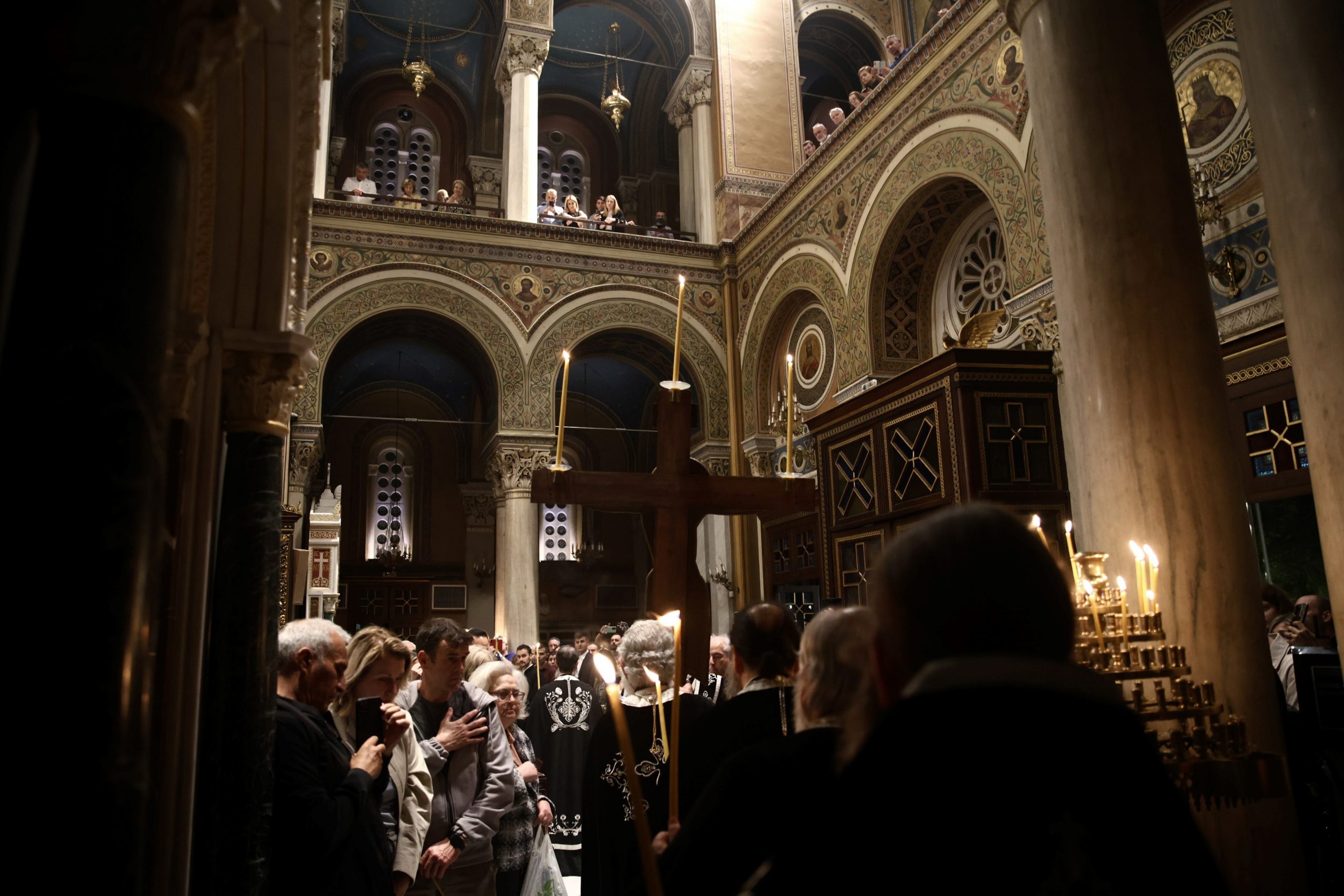Today, Sunday May 5, is Orthodox Easter Sunday, the culmination of the Great and Holy Week, the most important religious holiday in Greece.
The annual commemoration of Easter – called the Great and Holy Pascha in the Greek Orthodox tradition, with Pascha meaning “Passover” in Aramaic – is one of the two major travel and holiday periods in the country, with urban-dwellers traditionally heading for the provinces, ancestral villages and islands, and many returning to their ancestral towns and villages.
The other is the August vacation period, which starts around Aug. 1 and culminates in another religious feast day: the Dormition of the Virgin on Aug. 15.
Easter Sunday in Greece is characterized by the outdoor roasting of a lamb or goat on a spit, on grills and large ovens; the gathering of family and friends, often in a rural setting, and the exchange of red eggs – which have been dyed on Holy Thursday – which when cracked against each other symbolize Christ’s resurrection from the dead and birth into eternal life.
The exit of urban-dwellers this Easter has been characterized as one of the biggest in recent years, taking advantage of the very late Orthodox Easter and a post-pandemic economic recovery in the east Mediterranean country of roughly 10 million.



